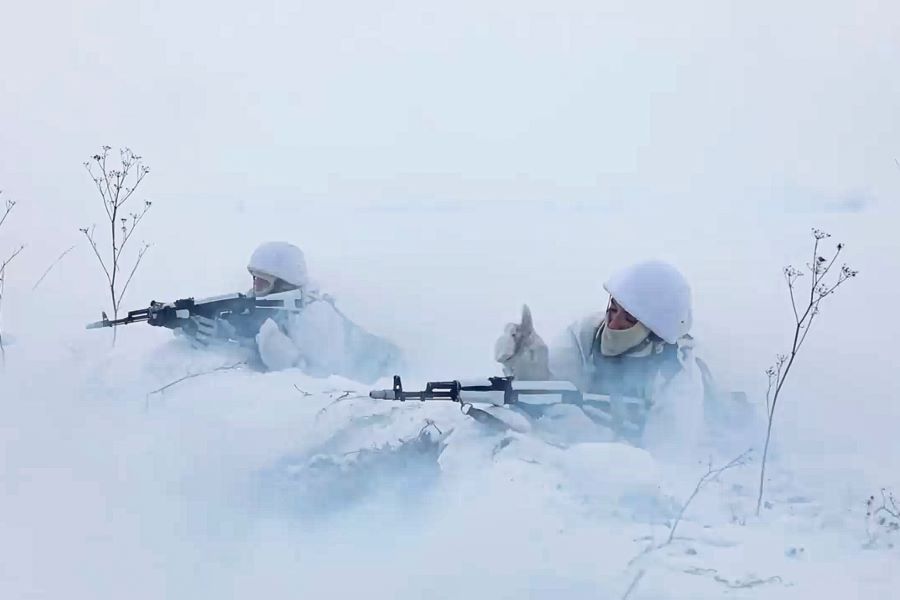
by Natasha Comeau | 14 Feb 2022 | Conflict, Decoders, Europe, Ukraine
Neighbors Russia and Ukraine share a common history that looms over Europe’s deepest security crisis in decades. In this image released by the Russian Defense Ministry Press Service on 2 February 2022, Russian soldiers attend military training at the Yurginsky...
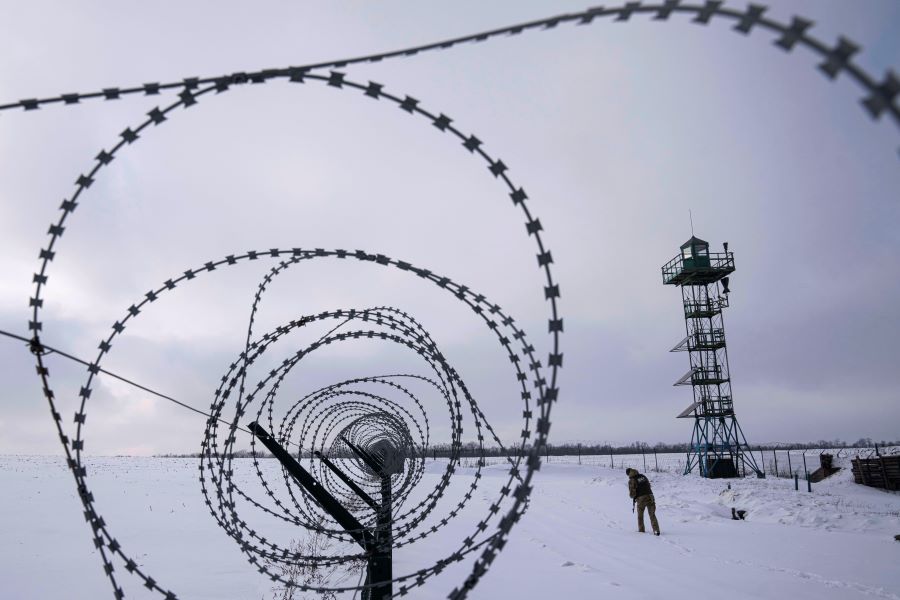
by Daniel Warner | 4 Feb 2022 | Conflict, Educators' Catalog, Europe, Joe Biden, Politics, Ukraine
Reminiscent of tensions during the Cold War, the Ukraine crisis represents the most serious East-West confrontation since the end of the Soviet Union. A Ukrainian guard patrols the border with Russia near Hoptivka village, Kharkiv region, Ukraine, 2 February 2022. (AP...
For a deeper dive into the history leading up to the war in Ukraine, consider this report from Daniel Warner, a political scientist, lecturer and expert in international organizations. While diplomatic negotiations have failed, the article provides an overview to decode historic ties between Russia and Ukraine, NATO’s actions, the potential impact on energy supply chains and thoughts on the future of the security architecture of international alliances.
Exercise: This article was written three weeks before the conflict began. Ask students to compare the theoretical discussion of conflict to what is happening in reality. What do they think was the tipping point for Russia to invade?
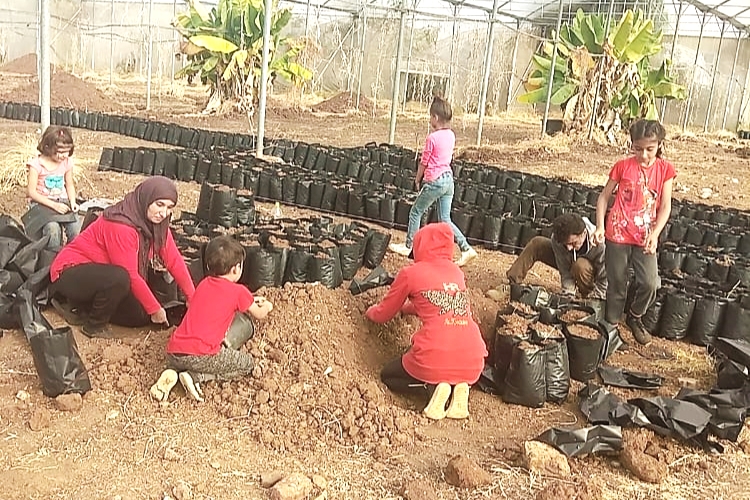
by Katharine Lake Berz | 1 Feb 2022 | Conflict, Educators' Catalog, Human Rights, Immigration, Middle East, Refugees, University of Toronto Journalism Fellows
Lebanon is suffering one of the worst crises the world has seen in 150 years. The children in one Syrian refugee family have little choice but to work. The Hemo family working in a greenhouse where they earn $10 a day for their labour, November 2021 (All photos by...
More than half a million refugees have fled Ukraine since war broke out one week ago, with more still fleeing the fighting. Throughout history, displacement has gone hand-in-hand with conflict. Decades of violence in Afghanistan displaced more than 2.6 million refugees, with thousands more fleeing last autumn after the U.S. troop withdrawal. (Some, like correspondent Zamir Saar, sought refuge in Ukraine.) According to the UNHCR, since 2011, the crisis in Syria has forced 6.8 million people to leave their country, with another 6.7 million internally displaced.
Now, an estimated 1.5 million Syrian refugees are living in Lebanon, including Sanam Hemo, her husband, and their seven children. While Lebanon provides safety, the country is experiencing a dire economic crisis, leaving no choice but for all family members — even their four-year-old — to work. Katherine Lake Berz, a journalism fellow at the University of Toronto, gives an up-close account of the reality of refugee life for Sanam’s family and how organizations like UNICEF Canada are seeking solutions to child labor.
Exercise: Ask students to put themselves in Sanam and Othman’s shoes. What would they do differently? What would they do the same?
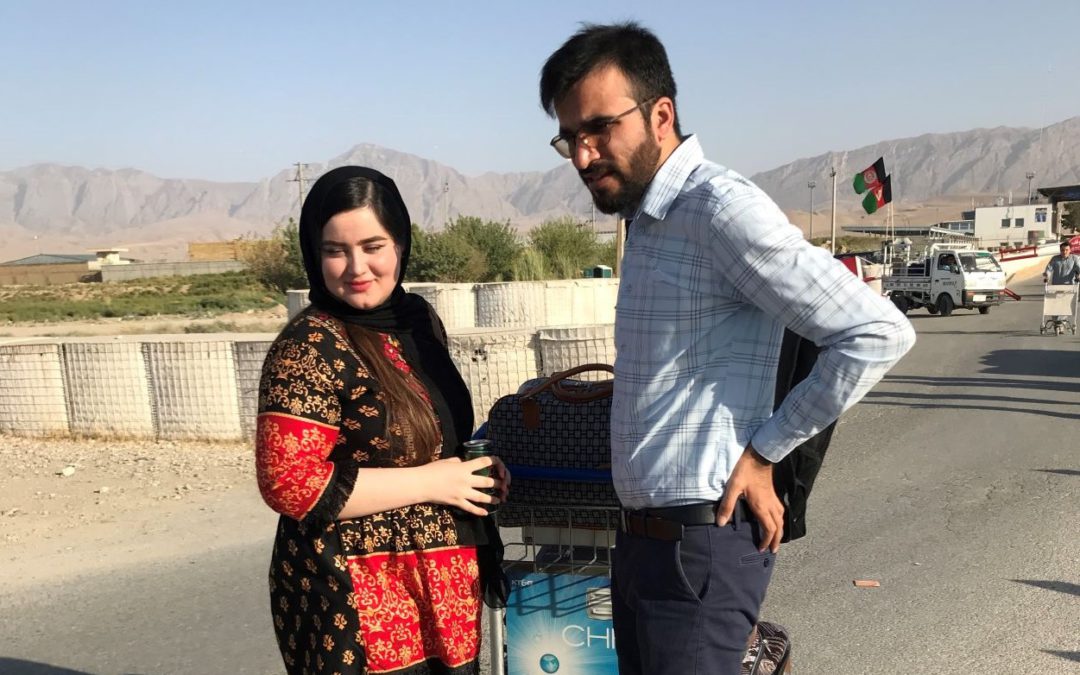
by Zamir Saar | 16 Nov 2021 | Asia, Conflict, Educators' Catalog, Eyewitness, Human Rights, Identity, Immigration, Islam, Personal Reflections, Refugees, University of Toronto Journalism Fellows
My pregnant wife and I were lucky to escape Afghanistan after it fell to the Taliban. We have swapped danger for refuge and bewilderment in Ukraine. The author and his wife bid farewell to their families at the entrance to Mazar-e-Sharif airport in Balkh province,...
Journalist Zamir Saar delivers a first-hand account of his and his wife Kamila’s experience escaping Afghanistan after the country fell to the Taliban in August. Grateful for refuge in Kyiv, Ukraine, far from the violence and downward economic spiral that face their native land, Zamir and Kamila — five months pregnant at the time they fled — now find themselves unsettled by makeshift living arrangements and uncertainty about their future. As Zamir notes, the hardest part has been leaving the familiar spaces in their home towns and finding nothing so far to replace them in their new environment. But there’s also recognition that there’s only so much a receiving country like Ukraine can do.
Exercise: Ask students to think about what makes them feel most at home and how they might recreate those things in an unfamiliar environment.
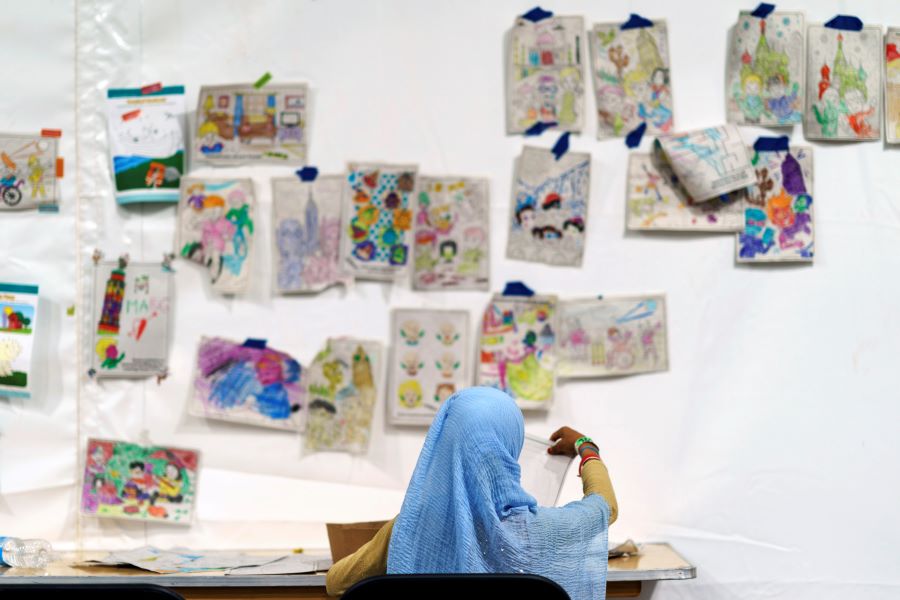
by Natasha Comeau | 20 Oct 2021 | Asia, Conflict, Human Rights, Immigration, Refugees, Terrorism, World
After Kabul fell to the Taliban, the hurried evacuation of Afghans and COVID-19 have complicated efforts to find the refugees new homes overseas. A child holds up a piece of artwork while drawing in a tent at U.S. Fort Bliss, in New Mexico, where Afghan refugees are...
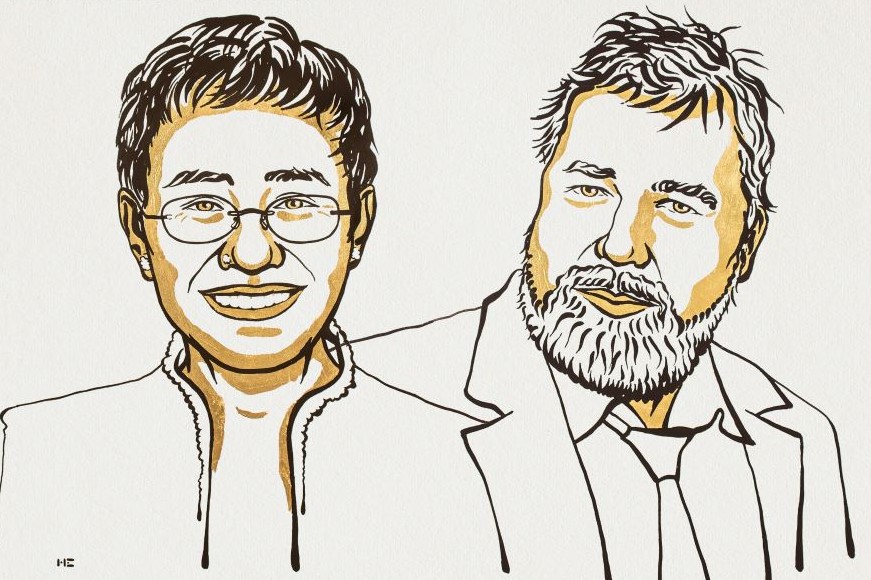
by Nelson Graves | 14 Oct 2021 | Conflict, Human Rights, World
Press freedom is under assault around the world and journalists are in increased danger. The Nobel Peace Prize highlights threats to the Fourth Estate. American actress Meryl Streep presented the 2020 Gwen Ifill Press Freedom Award to human rights lawyer Amal Clooney,...
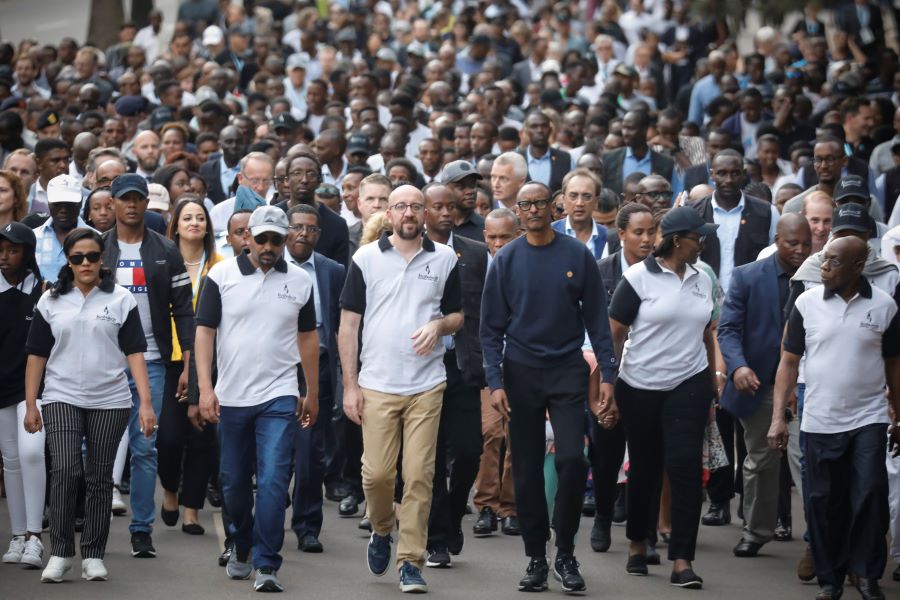
by Barry Moody | 28 Sep 2021 | Africa, Conflict, Human Rights
A civil war in Ethiopia and mounting criticism of Rwanda’s leader are increasingly imperiling U.S. strategy in volatile eastern Africa. Rwandan President Paul Kagame (C-R), Prime Minister of Belgium Charles Michel (C) and Ethiopian Prime Minister Abiy Ahmed...
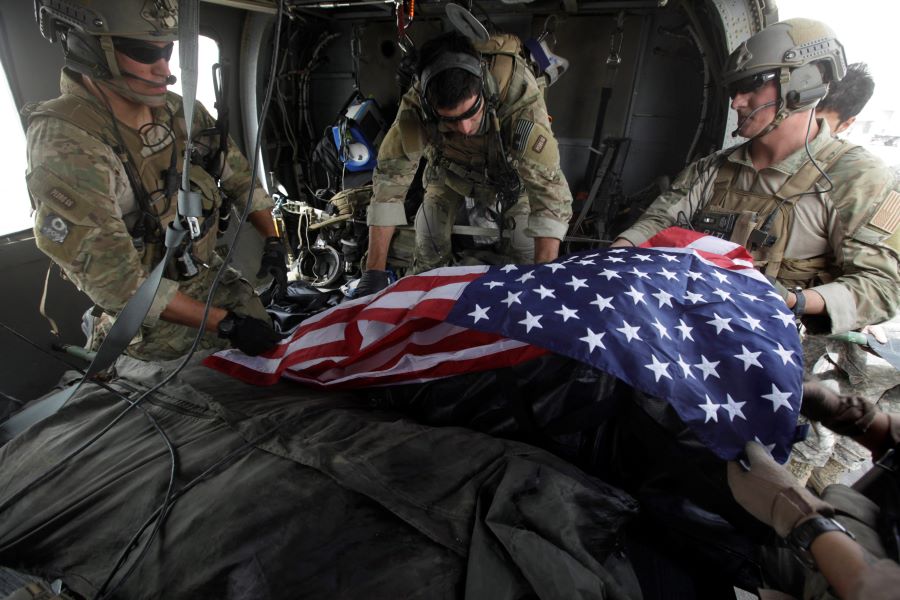
by Bryson Hull | 20 Sep 2021 | Asia, Conflict, Eyewitness, Islam, Personal Reflections, Politics, Terrorism, World
Many of us sensed a doomed U.S. mission in Afghanistan years ago and had drawn lessons. But the final costs of the invasion are still being tallied. U.S. soldiers drape a flag over a fellow serviceman killed on 29 July 2010 in Kandahar province, Afghanistan. (AP...
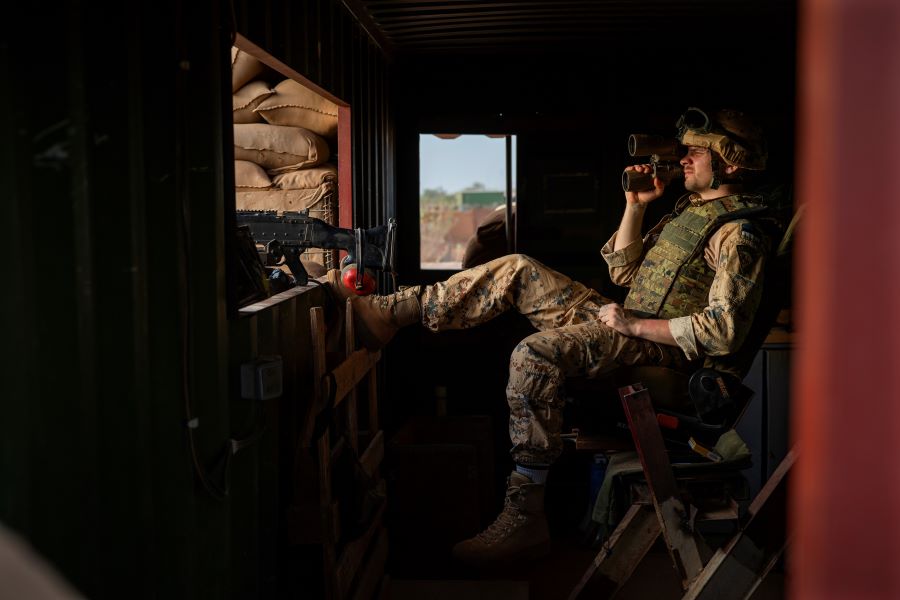
by Jessica Moody | 6 Sep 2021 | Africa, Asia, Conflict, Educators' Catalog, Islam, Politics, World
Islamist extremists are threatening fragile nations in West Africa. Will Afghanistan’s fall to the Taliban yield lessons for France in the Sahel? A soldier guards a Western military base in Gao, Mali on 6 June 2021, days after France announced the end of its...
When it comes to world politics, major news outlets often focus on one place at a time, obscuring important events unfolding elsewhere that can cause geopolitical ripples. In this article, News Decoder’s Jessica Moody shines a light on extremist violence plaguing West African nations in the Sahel, the semi-arid region below the Sahara. She draws parallels between French military involvement in the region and the United States’ recent withdrawal from Afghanistan, highlighting the global challenge of preventing extremist groups from proliferating in fragile states.
Exercise: Ask students to search news sites or newspapers for a global story that is not on the front page, then have them share their findings and explain why we should pay attention.
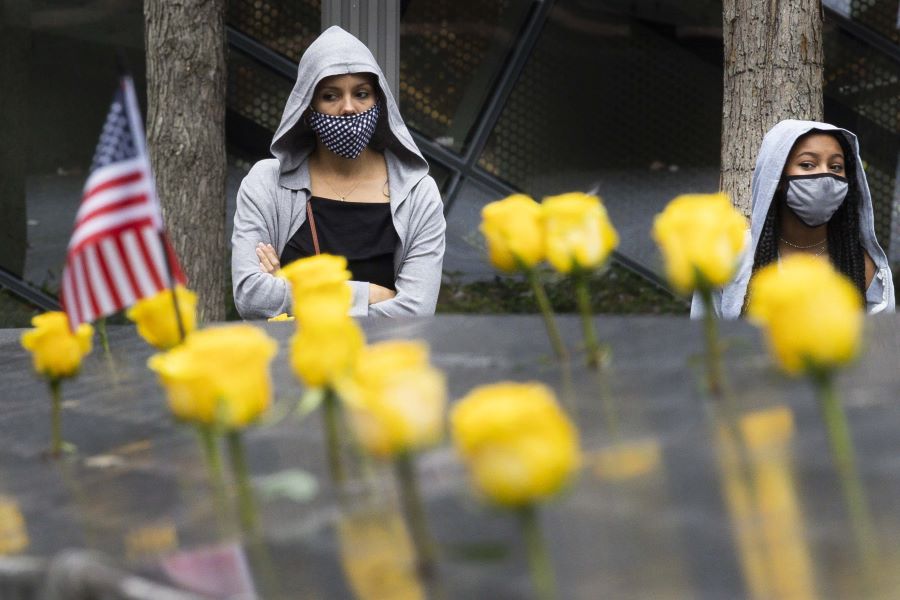
by Christina MacCorkle | 23 Aug 2021 | Asia, Conflict, Islam, Middle East, Politics, Student Posts, Terrorism, Thacher School, United States, Youth Voices
My generation was born after 9/11. Twenty years after that day, the attacks resonate with us, but we need historical context to grasp why they occurred. People walk past yellow roses and flags placed on the names of 9/11 victims who were veterans, at the 9/11 Memorial...










